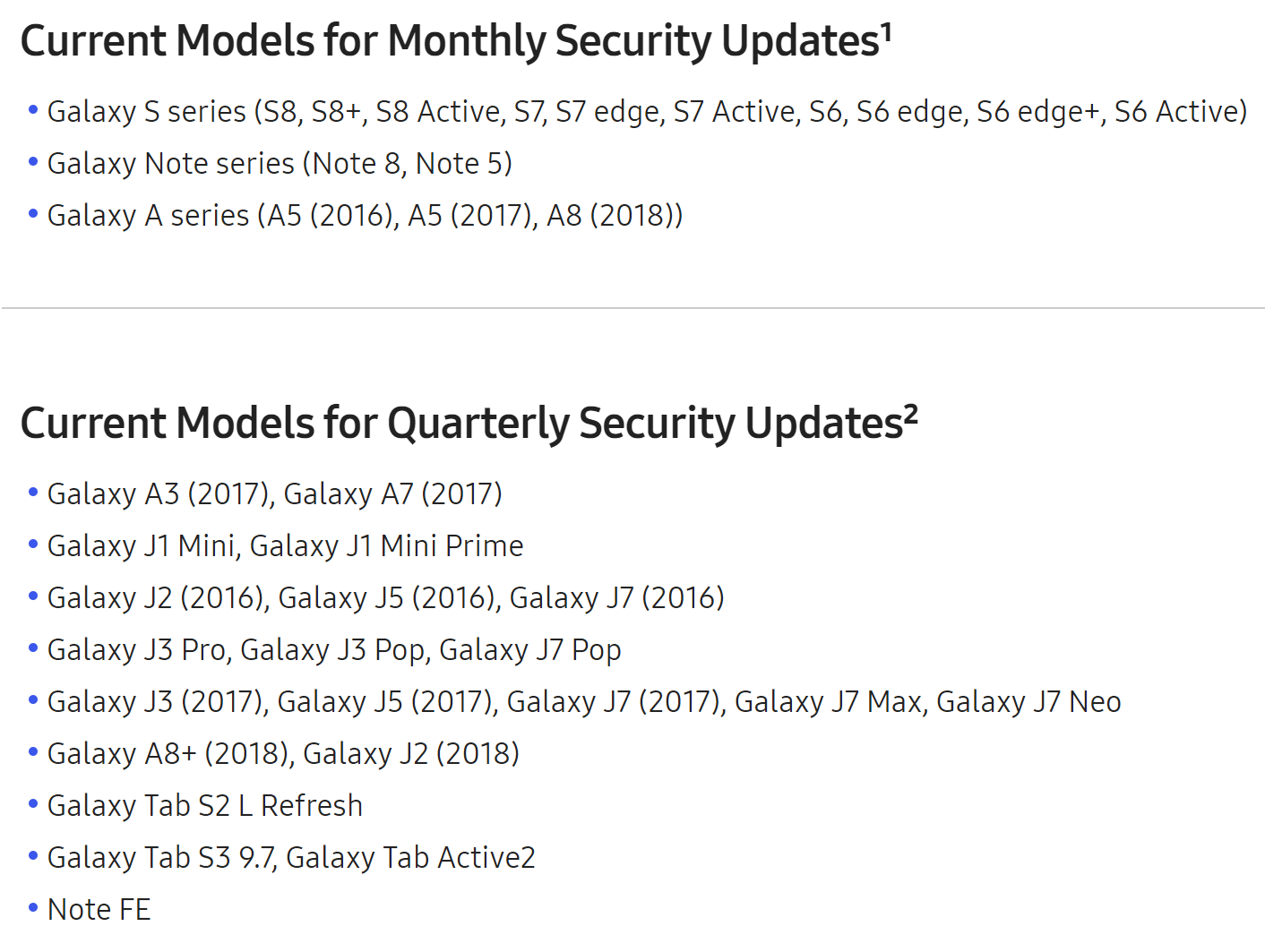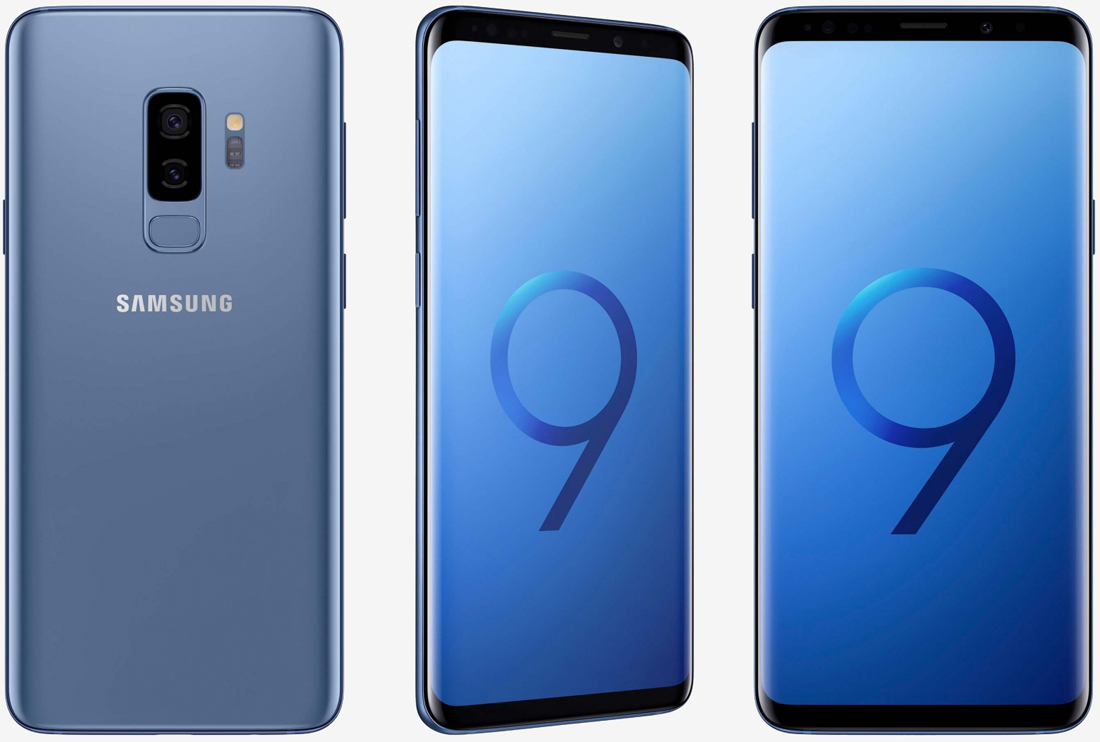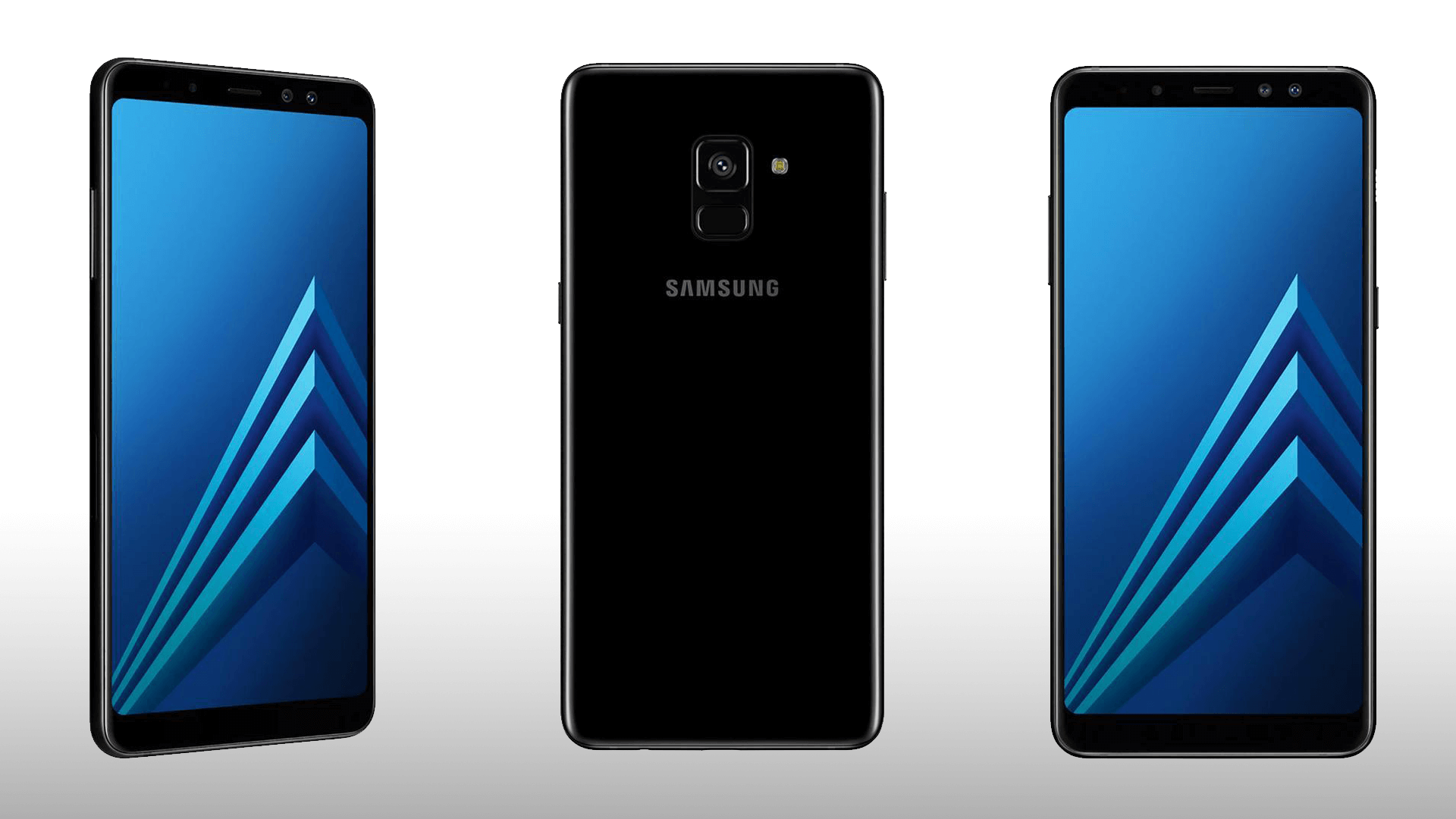One of the major issues Android has as an operating system is the lack of consistent updates across different devices. Some smartphones are running software several versions old and there is little that consumers can do to change that other than altering buying habits.
First, there is the issue that carriers must approve updates to be distributed over-the-air on the majority of Android handsets. Even after a manufacturer offers an update, carriers can further delay the process of distributing the latest software. This is meant to ensure that all software updates are fully compatible with carrier networks but is a delay nonetheless.
Samsung seems to be of the opinion that regular updates are not important to consumers who purchase anything less than flagship phones.
Taking a look at Samsung's Android Security Update policies shows that only the Galaxy S series, Note series and certain Galaxy A series devices receive monthly security patches. Other phones are apparently not important enough to offer the latest security updates. One model in particular that leaves questions open is the Galaxy A8+ that just launched in January 2018. The smaller Galaxy A8 is practically the same phone, so why does one deserve proper updates monthly while the other must wait longer?

More troubling is the fact that these are security updates, not feature updates. It is understandable that less effort is put into ensuring the newest software is compatible with older devices that were inexpensive to begin with, but basic security should not come at a premium. Moderately expensive devices should at minimum remain secure during their warranty period and hopefully several years beyond.
As an owner of a Galaxy S6, I am very disappointed that Android Oreo is not available for my device and shows no signs of appearing anytime soon, if ever. This is certainly no surprise given that it took several months longer than other devices to receive version 7.0 (Nougat). There are rumors circulating that Samsung offers three years of software updates for its current lineup of flagship devices but that may be limited to security updates only.

Unfortunately, Samsung does not allow end users to manually find and install updates. Consumers still are dependent on carriers to push out updates on time, assuming that updates for their device have been produced at all. A locked bootloader has pros for security purposes but also prevents enthusiasts from running the newest software possible. As luck would have it, my device is unable to be unlocked. However, even if it were possible, tripping Samsung's Knox security feature upon unlocking the bootloader would block the use of mobile payment apps.
Samsung has not yet added the Galaxy S9 and Galaxy S9+ to its mobile updates page but it is expected that both will be added to the monthly updates category.
For future purchases, software updates should be a large consideration when choosing which device will live in your pocket. Unless you are the type to upgrade often, it would be wise to get confirmation of how long a device will be supported before making a purchase.
